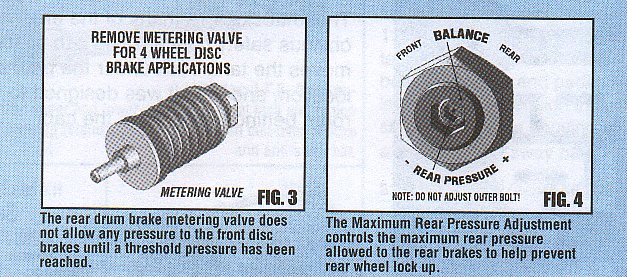I'm running the MCPV-1 (1 1/8" bore) with an 11" CPP booster on a 1972 Camaro. I have Wilwood 6 piston calipers up front a 4 pistons in the rear. The issue I have is that it seems like when applying pedal, it takes a significant amount of piston movement for the brakes to actually start engaging the rotors. Everything fits together perfectly- there is no 'slop' or 'play' and everything is bled properly (really good pedal with fluid movement as soon as pedal is applied).
Going from a stock disc/drum setup to a 'big brake' all-disc setup with all-new components including the CPP master and booster combo, I was hoping for a more "modern" pedal feel where the brakes engage pretty much as soon as the pedal is applied. Unfortunately, the new brakes feel pretty much the same as the 40 year old brakes did, and it takes several inches of pedal travel before any brake engagement is felt at the wheels.
I know the MCPV-1 has a metering valve installed that is intended for a disc/drum setup to send pressure to the rear brakes to build pressure to a certain level before pressure is allowed to go to the front brakes. I have also read that CPP used to require removal of this metering valve for disc/disc brake setups, but now they say that you can leave it in place for any setup. I'm not aware of any changes that took place to the design of the actual master cylinder itself, so I'm not sure why there was a change to the installation instructions.
I would like to know if removing this metering valve may allow for quicker engagement of the brakes by allowing pressure to pass to all four corners at the same time as soon as the pedal is applied. Would it be advisable to experiment with removing this valve and testing the brakes, or will this cause other problems or require re-bleeding of the brakes?
Thanks,
Matt






 Reply With Quote
Reply With Quote




Bookmarks